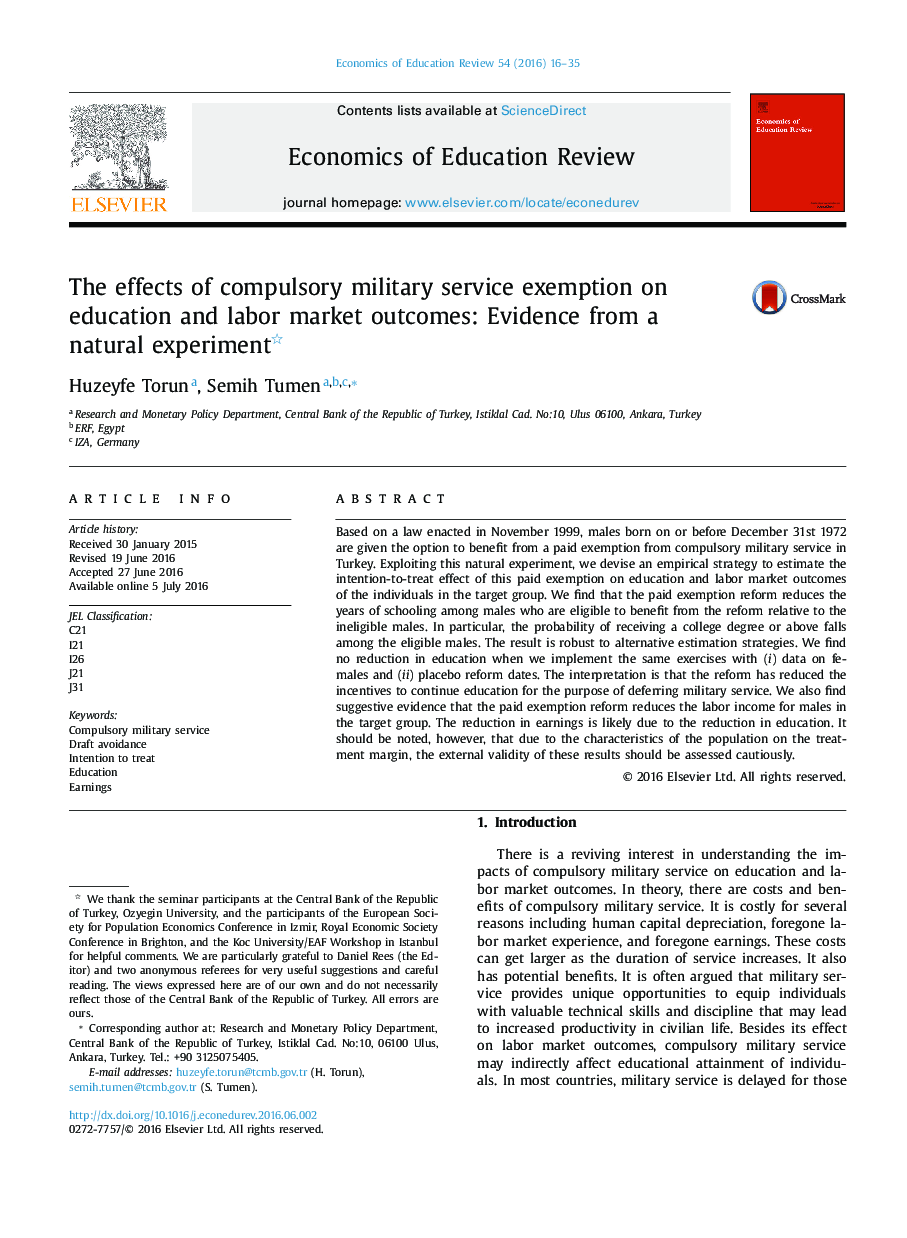| Article ID | Journal | Published Year | Pages | File Type |
|---|---|---|---|---|
| 354234 | Economics of Education Review | 2016 | 20 Pages |
•We assess the impact of a law allowing paid exemption from conscription in Turkey.•The main outcomes of interest are education and earnings.•Those who benefited from the reform have worse education and earnings outcomes.•This means that policies raising the benefits of enrollment can increase education.
Based on a law enacted in November 1999, males born on or before December 31st 1972 are given the option to benefit from a paid exemption from compulsory military service in Turkey. Exploiting this natural experiment, we devise an empirical strategy to estimate the intention-to-treat effect of this paid exemption on education and labor market outcomes of the individuals in the target group. We find that the paid exemption reform reduces the years of schooling among males who are eligible to benefit from the reform relative to the ineligible males. In particular, the probability of receiving a college degree or above falls among the eligible males. The result is robust to alternative estimation strategies. We find no reduction in education when we implement the same exercises with (i) data on females and (ii) placebo reform dates. The interpretation is that the reform has reduced the incentives to continue education for the purpose of deferring military service. We also find suggestive evidence that the paid exemption reform reduces the labor income for males in the target group. The reduction in earnings is likely due to the reduction in education. It should be noted, however, that due to the characteristics of the population on the treatment margin, the external validity of these results should be assessed cautiously.
